"Man has yet to create a parallel to wool": The sustainable knitwear brand out to revitilise Lancashire's rich wool farming heritage
This article contains affiliate links. We may earn a small commission on items purchased through this article, but that does not affect our editorial judgement.
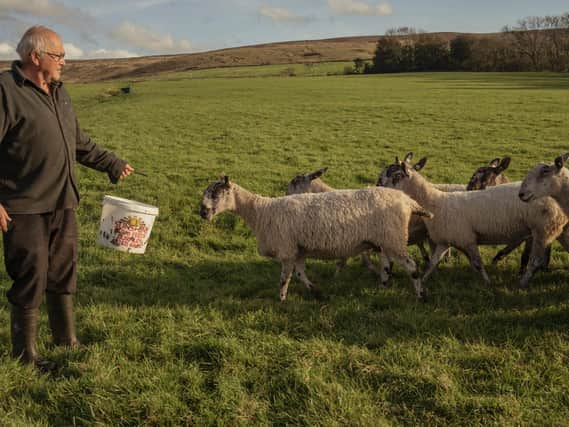

With the clothing industry accounting for an estimated 10% of global greenhouse gas emissions - more than aviation and shipping combined - the main culprits are cheap, synthetic fabrics made from petrochemicals. Acrylic, nylon, and polyester are all derived from fossil fuels extracted from sensitive and biodiverse environments, accruing hefty carbon footprints.
These low-quality products cater to an ever-expanding fast-fashion market which sells cheap and in bulk to a global population increasingly addicted to the dopamine-hit provided by the ease of online shopping and next-day delivery. But consumers rarely see the hidden environmental price tag attached to their purchases. 'Unsustainable' doesn't even come close.
Advertisement
Hide AdAdvertisement
Hide AdBucking the trend, HERD is a heritage knitwear brand which not only seeks to persuade consumers of the myriad benefits of sustainable fashion, but also to reintroduce that crucial link between consumers and local supply chains to the benefit of local people. Knowing where things come from and how they're made is a powerful thing.
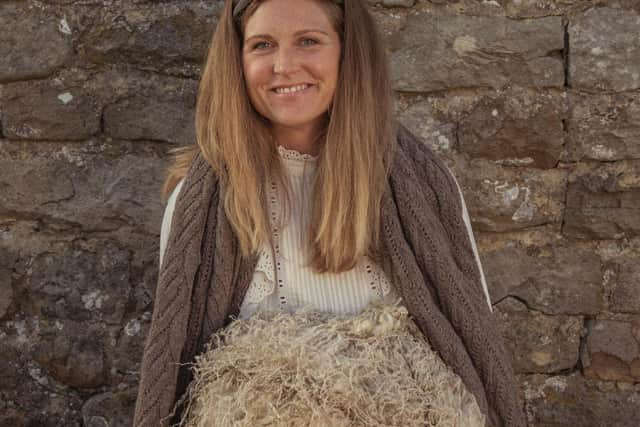

"I was living in California and running a wild organic seaweed business and became very interested in natural yarns and the Fibershed Movement [which promotes regional and regenerative fibres for more sustainable clothing]," explains HERD founder Ruth Rands. "And I'd always been really keen to work in a truly sustainable space.
"A dear friend runs a wedding venue near Scorton and I've always been inspired by the landscape," adds Ruth, who has familial ties to the North and who went to university in Leeds. "So, when I started thinking about sustainable yarn, there was an instinctive connection to the North."
But, Ruth says, she had yet to truly appreciate the area's rich history with regards to wool and sheep farming.
Advertisement
Hide AdAdvertisement
Hide Ad"Everything was there: amazing breeds of sheep, passionate farmers who are careful to retain their stock's pedigree and legacy, and a global world-class processing facilities," says Ruth, 41. "The area has such a rich textile history just bubbling away under the surface and a unique industrial infrastructure which makes it special.


"Once I understood that, it felt like too big an opportunity to turn down, and seeing the wider trends for sustainability and local sourcing made me feel like the time was now, especially with lockdown providing some extra time and impetus to get things off the ground," she adds. "We're now looking to spin around four to five tonnes of Bluefaced Leicester fleece in July alone."
Founded last October, HERD is seeking to revive the traditions of sheep farming for wool in the North - traditions left to wither on the vine by a perfect storm of cheap overseas production, environmentally-damaging synthetic alternatives, and the plummeting price of wool, which has forced British farmers into selling fleeces for pennies or simply burning them.
Inspired by the region's rich history, unparalleled infrastructure, and unique vocational skill-set when it comes to sheep farming and wool production, Ruth founded both HERD Wool, which supplies yarn, and HERD Wear, which sells the company's garments, in order to inject value back into the British wool market and out of a desire to re-establish our 'connection to nature'.
Advertisement
Hide AdAdvertisement
Hide Ad"Part of the inspiration for HERD is reconnecting customers to farming and understanding where products come from whilst also persuading them not to use oil-derivatives in their clothes," says Ruth. "Long-term, we want to support British farmers to build value back into the supply chain because, over the past 50 years, wool has gone from being highly-valued to being almost worthless.
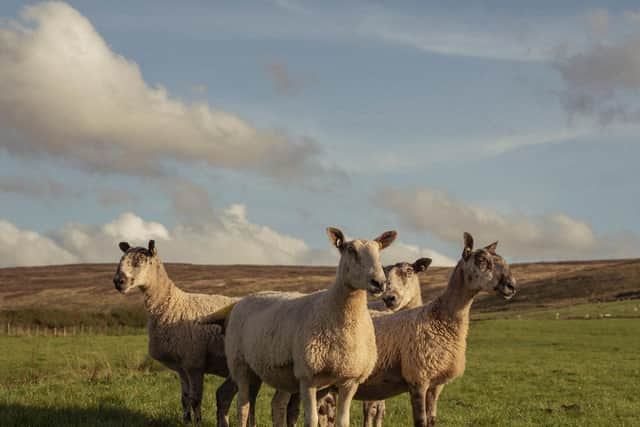

"But, in terms of fibres, man has yet to create a parallel to wool: it's biodegradable, anti-bacterial, heat-regulating, easy to clean, and it looks great!"
HERD's main flock of Bluefaced Leicester sheep grazes on farmland in the Forest of Bowland, with HERD championing the expertise of local farmers, graders, scourers, carders, dyers, spinners, weavers, makers, knitters, and finishers - in fact, their wool is grown, processed, and finished within 150 miles of the farm.
The company has also pledged to increase the price they pay for fleeces year-on-year in order to encourage farmers to rear sheep for their wool rather than meat and engage in more holistic farming methods which can contribute towards regenerative agriculture, helping to restore biodiversity, prevent flooding by increasing soil water retention, and promote carbon sequestering in the ground.
Advertisement
Hide AdAdvertisement
Hide Ad"The ultimate goal is to help reverse climate change, so we've got some quite ambitious aims!" says Ruth. "Fundamentally, the drive behind HERD is sustainability, so we want to start a movement back towards British wool: when we show them the products, farmers are blown away because, for so long, they've been told their fleeces are worthless because of synthetics."
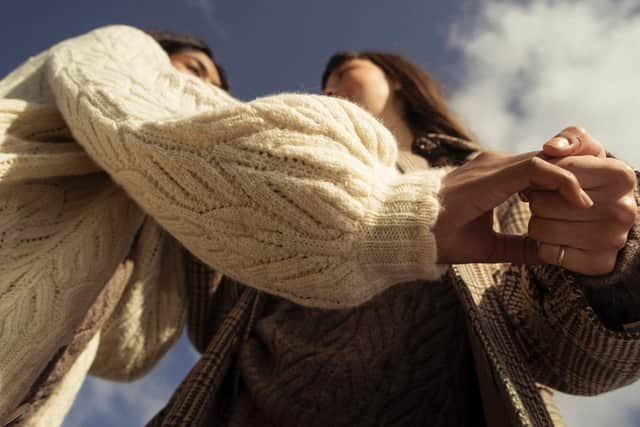

But, as Ruth rightly asks: at what social and environmental cost do such things come?
"Business didn't used to be as exploitative, but things have changed and farmers have been done a real disservice," she says. "We left them behind as consumers became disconnected from supply chains and it's urgent we reconnect because doing so benefits everybody: healthier food, more stable weather, increased biodiversity, and stronger communities.
"The potential renewal of a neglected industry has so many positives and there's a lot of pride in bringing something with such a rich history and heritage into the modern sartorial market," Ruth adds. "Working with the farmers is wonderful and we want to celebrate the North's unique aesthetic combining the industrial, the agricultural, and the semi-wildness of nature."
Advertisement
Hide AdAdvertisement
Hide AdIn a perfect world, the cards would be stacked in HERD's favour: wool is practically a super-product, Britain is thought to have more breeds of sheep than any other country in the world, and the company's laudable production method uses organic detergents, shuns toxic chemicals and dyes which can take millions of years to decompose, and results in stylish garments which lend a 21st century aesthetic to centuries-old tradition.
But fast fashion's pervasive reach, advertising scope, and lobbying power is considerable.
"There has been a movement towards local and natural products, but fashion still has a long way to go," explains Ruth. "We're up against a fast-fashion industry based on continual consumption and a constant marketing push to draw people's attention away from education because, when you're thinking about climatic impacts, you're not in the mood for purchasing.
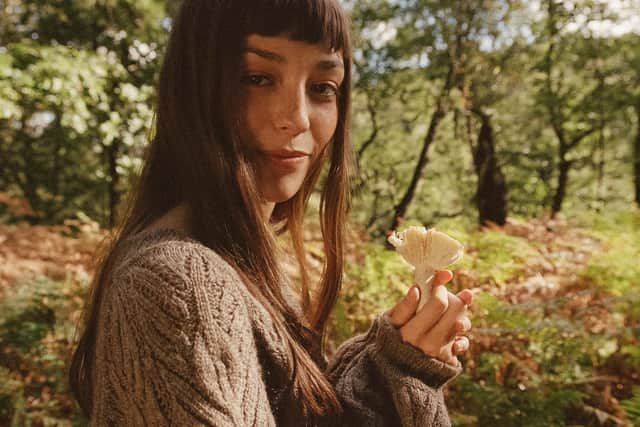

"And the price of something is powerful: if people think they're getting the same thing for cheaper, it's hard to persuade them to pay more," she adds. "People are open to trying to understand more, but it's hard to break through the noise and inform them of things like the fact that polyester is made of plastic, just like water bottles.
Advertisement
Hide AdAdvertisement
Hide Ad"The response from a certain segment of the market has been so positive because some people are becoming more aware of the issues around fashion supply chains, but imagine if there was a green tax put on things like polyester to represent the environmental impact it has... imagine how quickly things would change if that was the case."
Ambitious and growing the business with each passing month, Ruth is doing her bit and hopes that, as industry and consumer pressures change and more people start to scrutinise the true carbon-flecked price tag on every piece of clothing they buy, the sector will change. "But, currently, as a sustainable fashion brand, I feel like a minority," she admits.
The tide is turning, however. The pace of change is not nearly quick enough but, as large swathes of the population become increasingly aware of the role the fashion industry plays in the climate crisis - just as they became more aware of the impact of both the meat and dairy and aviation industries - people-pressure has the potential to impact matters.
In the meantime, Ruth is just looking forward to being able to get more hands-on with the business as we, hopefully, move into the final stages of the coronavirus pandemic.
Advertisement
Hide AdAdvertisement
Hide Ad"It's a very tactile industry, so Covid has been an extremely challenging period," she says. "Factories have had to cope with workers being off and social distancing, but people have moved mountains and I've been so impressed with how they've adapted. Overall, there's been almost no interruption, it's all been about adaptation.
"It's been a difficult time, but launching a locally-sourced business at a time when global supply chains have broken down has been interesting," she adds. "And it's been exciting: I'm so passionate about this because I know it's so important."